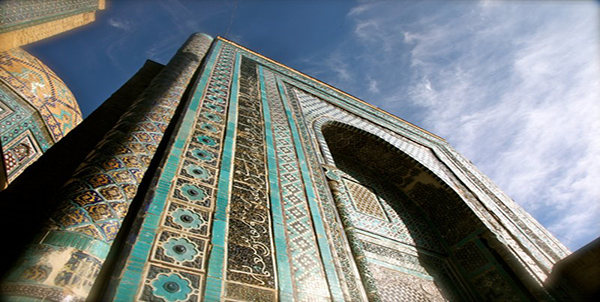NUH AS [ PART 1]

THE BIRTH OF IDOLATORY
Allah in His wisdom had deployed over 124,000 Messengers and Prophets to guide mankind towards the correct understanding of the way of life. Of this vast number, 313 of them were appointed as Messengers, and of this number, five of them were identified as the greatest and strongest of the Messengers (Ulul Azm).
The first of the Messengers is Nuh AS. It is reported that ten centuries (and by some other interpretations, ten generations) elapsed between Adam AS and Nuh AS.
During this time, Satan, relentless in his mission to divert mankind from the remembrance of Allah, had introduced a new kind of corruption to the descendants of Adam AS – idol worshipping.
The roots of this practice appeared harmless enough. There were a few pious men in the community – Wadd, Suwa, Yaghith, Yauq and Nasr. When they died, Satan inspired the community to erect statues in their likenesses to commemorate their goodness. These statues were built on their graves; and travellers and passers-by would stand before them, paying their respects while reminding themselves of the piety of these good men.
When the first generation died, the following generation followed the same practice, but forgot the original intention behind the construction of the statues. They began to worship the effigies as a ritual, forgetting the history, understanding and wisdom behind the original practice. They still believed in Allah, but were in a state of forgetfulness and ignorance. They believed that worshipping the statues and the graves would bring them closer to Allah. This was the beginning of shirk, and even now, millions of Muslims globally still carry on the evil practice of grave worshipping, in the erroneous belief that the pious dead can support them.
Idolatory soon became widespread. As time went by, people started inventing statues and idols for themselves so that they could worship these man-made deities from their own homes. They submitted themselves to venerating the statues instead of Allah.
Eventually Allah deployed Nuh AS to remind his people of the original message – monotheism, to worship none other than Allah, which included the prohibition against idol worshipping. Nuh AS was also sent to his community to warn them before a grave punishment fell upon them.
The Da’wah of Nuh AS
Various Qur’anic verses speak of Nuh’s AS efforts in calling them to the message of Allah. He pleaded with his people, at first in private and then in public. Day and night, month after month, year after year and century after century, he escalated his efforts to call upon them to worship Allah.
“Nuh said ‘My people, I have certainly been sent as a clear warner to you, that you serve Allah and fear Him, and follow me. He will forgive your sins and will grant you respite until an appointed term. Indeed when Allah’s appointed term comes, it cannot be deferred; if only you knew!'” (Al Qur’an 71:2 – 71:4)
Seasons passed and yet his message fell on deaf ears as his community continued to resist, persisting in their idolatory. They resented Nuh AS and treated him with disdain. “The leaders of his people said we find you [Nuh] in clear error.”(7:60). Nuh AS replied “O my people! There is no error in me, I am a Messenger from the Lord of the worlds. I convey to you the Messages of my Lord, and advise you, and I know from Allah what you do not know.” (Al Qur’an 7:61-7:62)
His community scoffed at his reply, and said that they did not see him except as a human being like themselves, scorning the lowly status of his followers within their social strata. They declared that did not consider Nuh AS as having any merit above them, indicating their contempt at his lack of status in their eyes. They accused him and his followers of being liars, and labelled Nuh AS as a madman and a man possessed.
To this, Nuh AS replied: “O my people! Just consider, if I have a clear sign from my Lord, and He has bestowed His mercy upon me, which has been obscured from your sight, shall we compel you to accept it when you are averse to it?” (Al Qur’an 11:28) Nuh AS continued that he did not claim to possess the treasures of Allah, nor of any knowledge of the Unseen. Neither did he profess himself to be an angel, but rather a mere mortal who lived in their midst. After all, he explained patiently, it was only fitting for a human being, not an angel, to preach the message to a community of human beings.
Nuh AS continued to invite his people with gentleness and politeness. He impressed upon them the promise of Allah’s mercy and asked them to ponder over the wondrous creations of Allah. He tried to persuade them to abandon their false deities and seek repentance from Allah, constantly maintaining that “I do not ask of you any reward for this, my reward rests only with Allah.” This is the way adopted by all prophets and messengers of Allah, never once expecting or capable of being enticed by any material gain or reward, be they financial, political or social – in short, incapable of being bribed into silence or bought by money.
One generation succeeded another. The arguments between Nuh AS and his people persisted. According to the Qur’an “…he lived among them one thousand years less fifty …” (Al Qur’an 29:14) He did not falter in his efforts, yet in this vast period of time, only a few people believed in him, most of whom were of the weak and oppressed within the community. The rest, especially the wealthy and the elite, were immersed in darkness and ignorance.
For the majority, each generation succeeded in indoctrinating the following generation to refuse belief in Allah and Nuh’s AS message. Nuh AS displayed colossal patience at confronting the stubborn and insulting ways of his community. However, as the centuries passed, the more he called his people, the farther they fled.
It came to a point where whenever Nuh AS called upon his people, “they thrust their fingers into their ears and wrapped up their faces with their garments and obstinately clung to their attitude…” (Al Qur’an 71:7) They began goading him, challenging him to bring to fruition his warnings of their destruction if he were indeed speaking the truth. Their nonsensical and outrageous reactions demonstrated their disbelief against Allah. Not satisfied, they began to conspire against Nuh AS, threatening him with severe physical harm, with the intention of frustrating his da’wah efforts for good.


![Photo of ADAM AS [ PART 1]](/wp-content/uploads/2020/09/d6086de322f98f66cc694f32ea284557_XL_0-390x220.jpg)
![Photo of ADAM AS [ PART 2 ]](/wp-content/uploads/2020/09/106117794.Gu9ZCkGy-390x220.jpg)
![Photo of NUH AS [PART 2]](/wp-content/uploads/2020/09/nuh-as-part2-390x220.jpg)